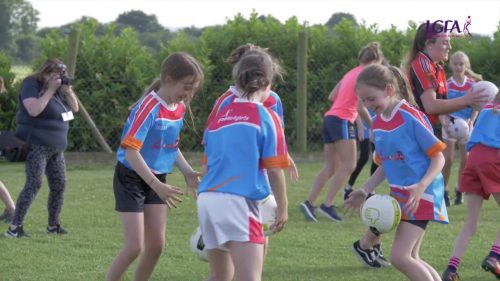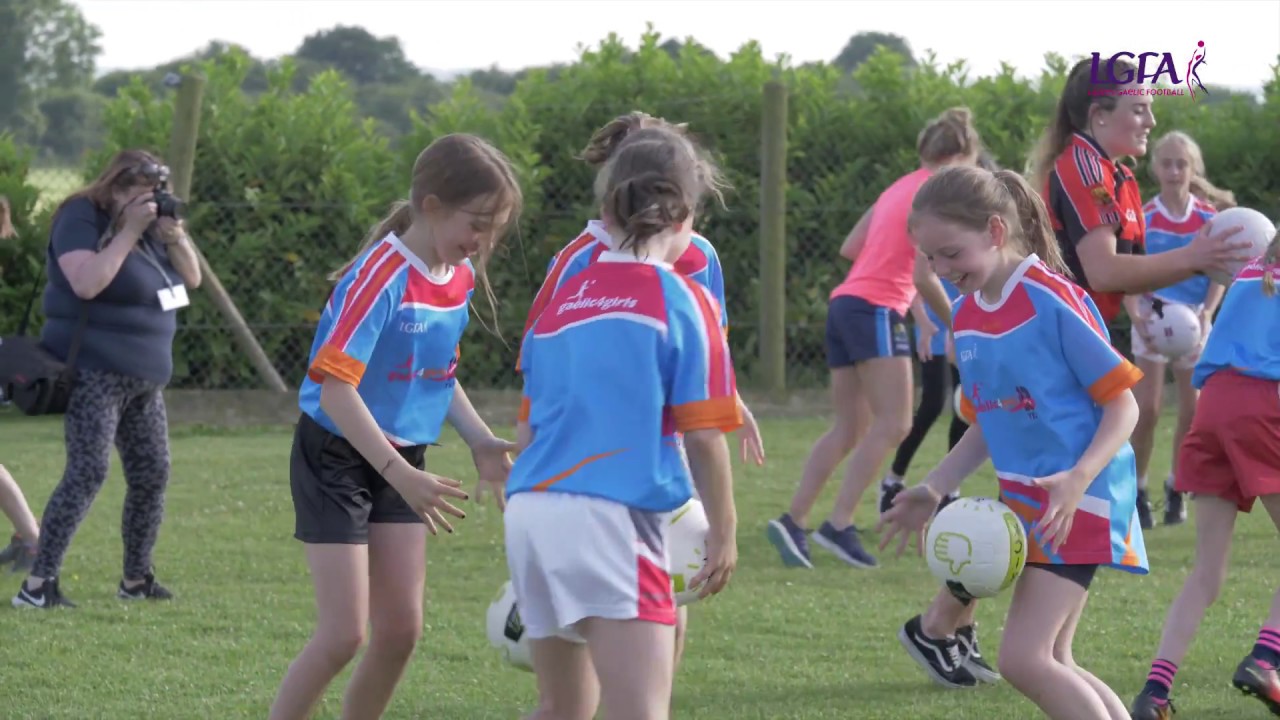Irish physical literacy researcher empowers girls with Gaelic sports program
 A revolutionary Irish sports initiative custom-designed for young female participants has made a global splash, with researcher Orlagh Farmer sharing the successes of the fast-growing program Gaelic 4 Girls at this year’s International Physical Literacy Conference (IPLC) in Winnipeg. As far as she’s concerned, it was a niche that was begging to be explored.
A revolutionary Irish sports initiative custom-designed for young female participants has made a global splash, with researcher Orlagh Farmer sharing the successes of the fast-growing program Gaelic 4 Girls at this year’s International Physical Literacy Conference (IPLC) in Winnipeg. As far as she’s concerned, it was a niche that was begging to be explored.
Working with 36 clubs across Ireland, she began to accumulate evidence to support and further enhance the work already being done on the ground.
“The G4G’s program specifically targets girls aged 8 to 12 who do not play the sport, and who are not registered with a Ladies Gaelic Football Club. This introductory program runs annually for 12 weeks across 40-plus clubs in Ireland and has been running since 2008,” Farmer told Sport for Life.
“It is interesting to note that Ladies Gaelic Football is recognized as one of the fastest growing female sports in Europe, presently.”
Gaelic games is one of Ireland’s most popular pastimes, though many North Americans have never heard of it. It involves two main sports, football and hurling, and is focused on the fundamental movement skills necessary to play properly. It also has a strong emphasis on fun, as they’re aiming to retain as many participants as possible. Over 400 athletes participated in Farmer’s study in both 2017 and 2018.
“With the growing nature of Ladies Gaelic Football across Ireland and the globe, evidence-based research for community sport in youth is essential – particularly as research has shown that girls are less physically active than boys globally, and girls have a higher risk of dropping out of sport than boys,” she said.
Recently, she undertook a 10-week research program to examine the impact the program has had and strategize how to improve it in the future. This is part of her PhD research in the Department of Sports Studies and Physical Education at University College Cork. The findings have been heartening so far, and during IPLC she shared them with fellow delegates.
“Not only were significant improvements found in physical activity and fundamental movement skills, there were also increases in the psychosocial domain (self-efficacy, perceived self-confidence, and family/social support).The positive outcomes of G4G may be used to help guide the continued development of the G4G intervention at national level, and future theory-based interventions targeting PA promotion for pre-adolescent girls,” she said.
“Targeting girls physical activity levels and motor skills through fun, non-competitive, autonomous environments, with social support for players, coaches and parents and guardians may provide a complementary synergy of content, pedagogical knowledge and participatory confidence among coaches and young children within community youth sporting contexts.”
One element of G4G Farmer’s particularly proud of is the incorporation of dance. She’s found the girls respond positively, particularly when she plays Ed Sheeran.
“The G4G dance is an innovative element of our research and provided an appropriate medium to increase girls’ physical activity and fundamental movement skills. We were able to apply the self-determination theory through intrinsically motivating and building girls’ perceived autonomy, competence and relatedness,” she said.
The response from IPLC conference delegates was overwhelmingly positive, said Farmer, plus she drew inspiration from the keynote speakers. She believes she can incorporate some of the things she learned into her work back in Ireland.
“I particularly resonated with what Dr. Dean Dudley and Dr. Dean Kriellaars postulated at the conference, specifically regarding the concepts around meaningful movement, relatedness, social interaction, fun, friendship, and the provision of personally relevant challenges that have connections for young children – all of which align strongly with G4G.”
Farmer continues to compete at a national level, and during IPLC she flew back to Ireland to compete in a Ladies Gaelic Football league final. That was a move that earned her headlines, and the attention of Sport for Life CEO Richard Way. He applauded her commitment to physical literacy, and her contribution to research that could benefit girl athletes all over the world.
“At Sport for Life we believe that inclusion is absolutely non-negotiable, and programs such as Gaelic 4 Girls provide us with a powerful example of the way sports programming could be done both here in Canada and around the globe,” said Way.
“During our conference in Winnipeg we had the chance to meet Orlagh and experience firsthand her passion for movement, and for ensuring that girls in Ireland have opportunities to be active and have fun. We couldn’t be more grateful for her contribution to the conversation.”

